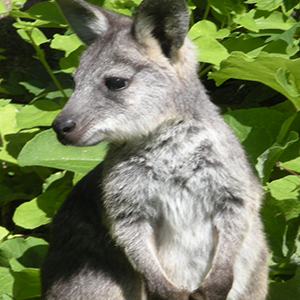- Letters: A/DKLORW
- Words: 28
- Points: 111
- Pangrams: 1

|
The table provides clues for the roots of words in today's NY Times Spelling Bee. You're responsible for prefixes, suffixes,
tense changes, plurals, doubling consonants before suffixes, and alternate spellings of roots.
The TL;DR about the site comes after the table.
The Halloween, 2021 redesign improved the usability, I hope.
Past clues are available here |
Today's puzzle
|  |
|
Table content
|
| root # | answers covered | answer's first two letters | answer's length | clue for root (answer may need prefix, suffix, tense change, alt spelling, ...) |
|---|---|---|---|---|
| 1 | 1 | AL | 5 | Permit, verb |
| 2 | 1 | AR | 5 | Passion (Latin “to burn”) |
| 3 | 1 | AR | 5 | What you shoot with a bow |
| 4 | 1 | AW | 5 | Prize for merit, noun (Academy … for Best Picture) |
| 5 | 1 | AW | 7 | Difficult or embarrassing (pause, position, questions), adj. |
| 6 | 1 | DA | 4 | Absence of light |
| 7 | 1 | DO | 6 | US currency |
| 8 | 1 | DO | 6 | Thingamajig, slang; ends in “father” nickname |
| 9 | 1 | DR | 4 | Make a sketch, or pull a gun from its holster |
| 10 | 1 | DR | 5 | Speak in a slow, lazy way with prolonged vowels (Southern…) |
| 12 | 1 | KO | 4 | Small African tree with nuts that flavor Pepsi |
| 11 | 1 | KO | 5 | Tree climbing marsupial “bear” |
| 13 | 1 | LA | 4 | Pig fat for cooking |
| 14 | 1 | LA | 4 | Small, ground-dwelling songbird (meadow…), or something done for fun (he entered the race on a…) |
| 15 | 1 | LO | 4 | A unit of laundry, noun; or to fill up a truck, verb |
| 16 | 1 | OK | 4 | Green veg in gumbo |
| 17 | 1 | OR | 4 | Spoken (… exam), or by mouth (… surgery), adjective |
| 18 | 1 | RA | 5 | Nickname of Cpl. O’Reilly in M.A.S.H., or Doppler weather sensor acronym |
| 19 | 1 | RO | 4 | Street ("Abbey …"), or “rocky …” ice cream flavor |
| 21 | 1 | RO | 4 | Lion “shout” |
| 20 | 1 | RO | 8 | Construction (labor) on a street or highway, compound (“… ahead”) |
| 22 | 1 | WA | 4 | Travel on foot, verb/noun (… don't run) |
| 23 | 1 | WA | 4 | Barrier between rooms, or Pink Floyd album ("The …") |
| 26 | 1 | WA | 4 | Actress Sela, or hospital dept. (burn, e.g.), noun + perfect pangram gerund (…off evil); remove 1st letter from other perfect pangram to get this one (2 words) |
| 25 | 1 | WA | 6 | Roll around in mud, or indulge "in" emotion (misery, self-pity) |
| 27 | 1 | WA | 7 | Aggressive regional commander with individual autonomy (compound) |
| 24 | 1 | WA | 8 | Australian marsupial, smaller than kangaroo, bigger than wallaby (portmanteau) |
| 28 | 1 | WO | 8 | All the stuff you have to do in your job (compound, pangram) |
This site provides clues for a day's New York Times Spelling Bee puzzle. It exists to make it easier for Kevin Davis to take a day off. Most of the clues come from him. There may be some startup problems, but long term I think I can put the clues together with no more than half an hour's work.
The "Bee Roots" approach is to provide explicit clues for root words, not every word. This is similar to what Kevin Davis does, but without information about parts of speech As logophiles, we are pretty good at putting on prefixes and suffixes, changing tense, and forming plurals (including Latin plurals!). The clues cover root words, arranged alphabetically by root word, with a count of words in the puzzle that come from each root. For example, if a puzzle includes ROAM and ROAMING, there will be a clue for ROAM and a count of 2. The root may not appear in the puzzle at all; for example, the 2021-07-23 Bee included ICED, DEICE, and DEICED. For such a puzzle, the clue would be for ICE with a word count of 3.
The Bee Roots approach involves judgement sometimes. For example, if a puzzle includes LOVE, LOVED, and LOVELY, how many roots are needed to cover them? LOVE and LOVED share the root LOVE, certainly, but LOVELY is tricky. LOVE is part of its etymology, but by now, the word means "exquisitely beautiful," which is a lot farther from the meaning of LOVE than swithcing to past tense. I'm inclined to treat LOVE and LOVELY as separate roots. You may not agree, which is fine. Another thing we logophiles share is a LOVE of arguing about words on Twitter.
One last complication, until another one pops up: a few roots have multiple spellings, for example LOLLYGAG and LALLYGAG. Depending on the day's letters, and maybe even the editor's whims, one or both could be in the puzzle's answer list. With such roots, you could see a word count of 2, even if there are no applicable prefixes or suffixes.
I will do my best to keep this site up to date and helpful (I hope). Check it out, and tweet feedback to @donswartwout Tweet to @donswartwout
Many thanks to Kevin Davis, whose 4,500-word clue list made this possible.